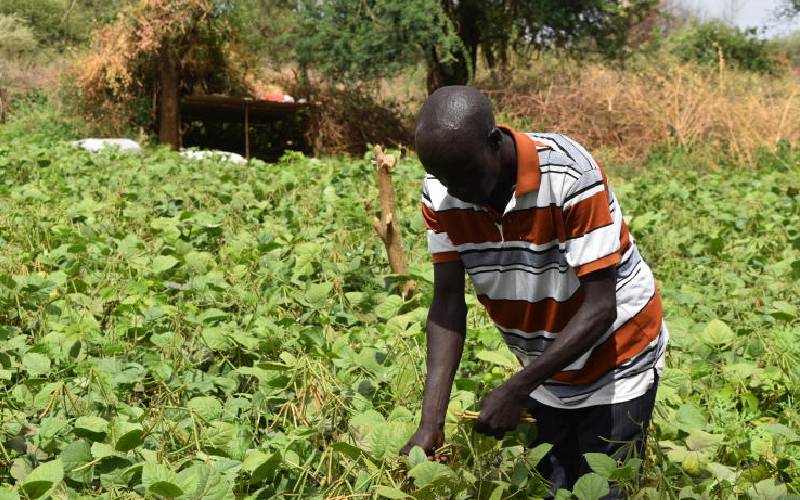×
The Standard e-Paper
Smart Minds Choose Us

Isaiah Lokoita harvesting green grams at his farm in Lomut, West Pokot. [Irissheel Shanzu, Standard]
It is midday in Lomut, West Pokot County, and local resident Isaiah Lokoita has joined a group of other men to clear thickets, preparing the farm to plant green grams.